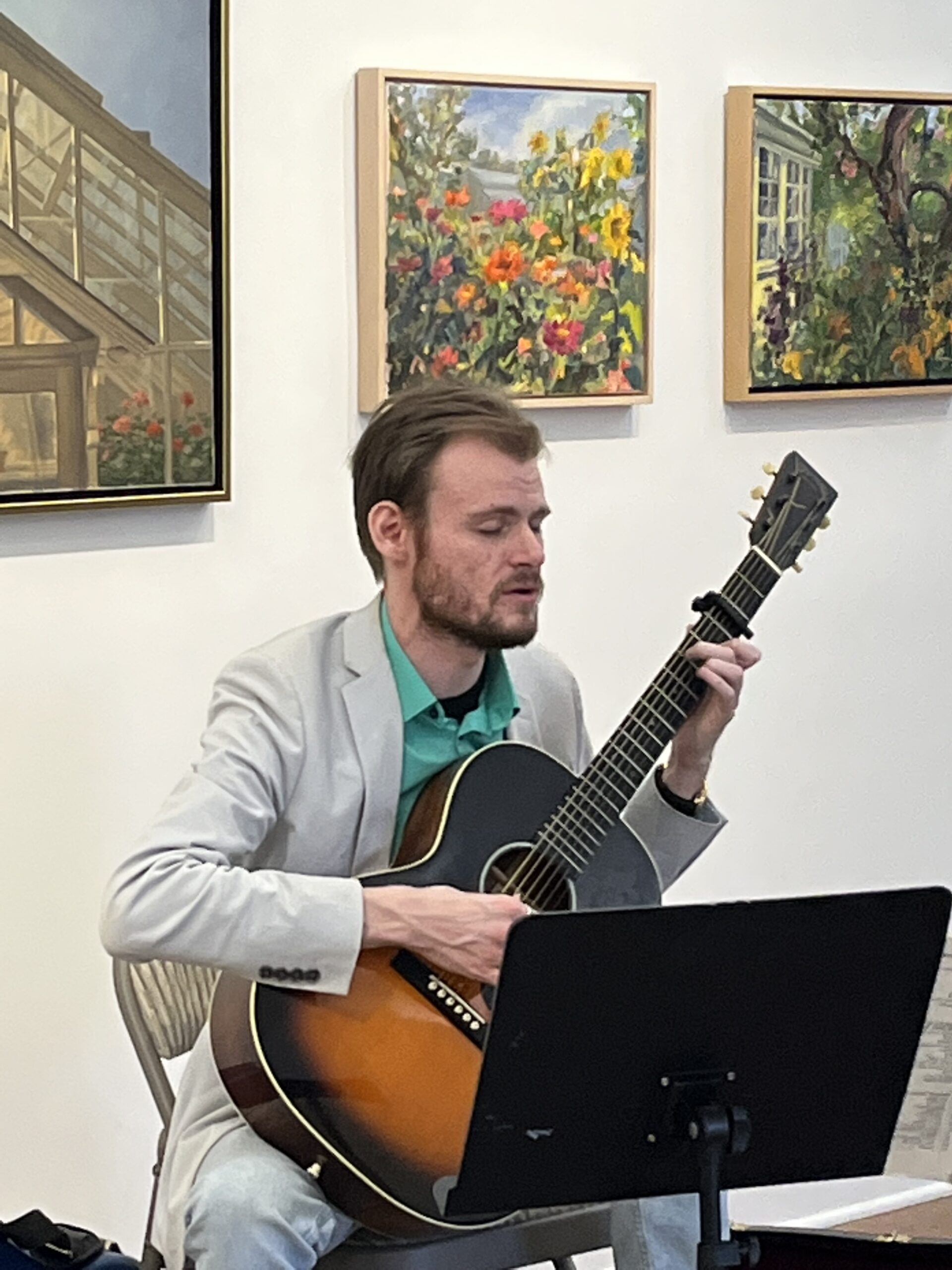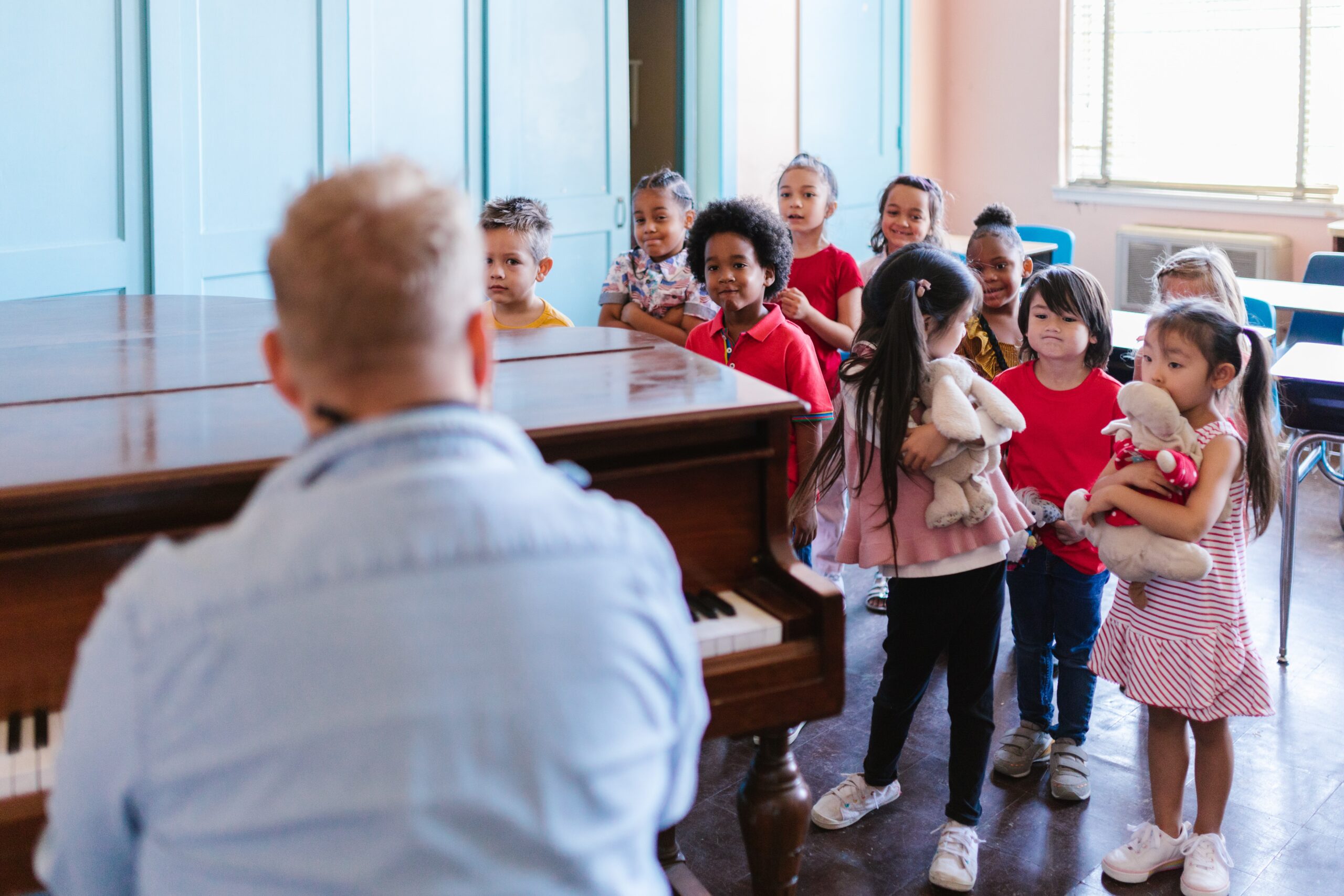By Charles Shaw
Music programs at all levels of education have faced struggles such as budget cuts and low enrollment, and the pandemic has only magnified these issues. The switch to remote learning left many schools to put music classes on hold, leaving children without an emotional outlet. Educators said they believe music is a crucial component to a child’s development, especially during a time when worldwide shutdowns forced families to stay indoors. Now that classes are back in person, music programs are looking to rise from the pandemic’s setbacks.

It’s been no secret that music programs, from public schools to universities, have struggled. In 2018, a survey from the University of Sussex claimed that music programs had a significant risk of disappearing in England, showing a 35 decrease over a five-year period of schools requiring music for eighth grade students. In New York City, public schools are expecting funding cuts of more than $200 million under the next city budget, which parents and teachers believe could impact music and arts programs.
Music at the University level also faces adversity. In 2021, Long Island University announced they had frozen their music education program due to low demand. They are not the only campus on Long Island that is struggling with enrollment in music programs.
Cut 1A: As a professor I definitely noticed a dwindling of the amount of students signing up for music, especially as music majors.
Courtney Fleming is a folk musician with an educational background in classical guitar. He was an adjunct professor at Nassau Community College, where he taught a beginner guitar course.
CUT 1B: “So, like, when I was a professor there I think there were a total of, I could be mistaken on the exact figure but it’s about, there were maybe six or seven guitar students. It wasn’t a lot.
Courtney’s experience at NCC showed him first-hand what music educators are facing. He believes the lack of enrollment in music departments are due to how music as a career is perceived. Rising tuition costs and the fear of not making a profitable living within the field are two major components that Courtney believes are turning students away from music.
Cut 2: There are a lot of music departments that are always under the gun sort of, for being shut down either because of lack of students, or because maybe the college wants to save some money and they need to get rid of a department, I don’t know. And, the first thing that gets asked is the arts because they see that they have fewer students in arts programs than anything else. And again, what it all comes down to is that, like even if they’re gonna shut the – if the departments at risk to be shut down because there’s not as many students, like then you got to make the case about why the department is necessary.
According to research from Data USA, students are receiving far less degrees for music compared to other majors. In 2020, business and health, two of the most popular programs in higher education, each saw well over 800,000 students awarded a degree in their field. By comparison, approximately 27,000 students were awarded a music degree in that same year.
Cut 3: So for me it’s funny because there seems to be this weird dichotomy in our society where the arts are not necessarily looked on the highest in terms of value. But meanwhile, in any form of media that they’re watching, music is central to what they’re watching. And most people, if they’re upset, their catharsis is listening to a song.
Despite low enrollment numbers, music remains a crucial tool, especially for a child. According to a five-year study from the University of California, music instruction appeared to accelerate brain function for reading and language development in young children. This is just one of the many ways music can have a positive impact on their lives.
Cut 4: Uhm, number one with children I think it helps to manage aggression. Music is a very, or can be a very calming thing. It can also be a very energizing thing.
Patricia Shih is a singer songwriter who has spent the last 37 years performing arts and education programs in schools. These programs are designed to entertain children while allowing them to grasp ideas such as multiculturalism, bullying, and the environment. For her, music is a crucial component on the development of a child.
Cut 5: Music is a wonderful vehicle. It’s kind of like a spoonful of sugar – except it’s healthier – to help things go down. Lessons that you want to teach children. And it’s also sort of a disguise because you can do it in such a fun way, an entertaining way that they’ll get the message, they’ll get the meaning, the content of the songs much easier than if you just speak to them about it. There’s something about the way the brain is hardwired, I think.
Cut 6A: Music is a really big part of a child’s social development. It has connection to almost every single subject that they have in school.
Kelly Grace is an adjunct professor at Hofstra University. She teaches elementary music methods in the music education program.
Cut 6B: It gives them self-confidence as a person, it teaches them to work in groups, it’s just endless. If you really think about it, there’s really just so many connections to music in their everyday life. What they learn about their country, what they learn about their religious beliefs, how to count. It can all be connected back to music. So it’s such a big part of a children’s world.
Prior to teaching college students, professor grace was an elementary music teacher, where she witnessed the importance music has on a child, especially for those who have trouble learning.
Cut 7: There are children who struggle academically, and the highlight of their week could be coming into school because they know it’s music day, or it’s the day that they’re gonna play in the band, or have their string lesson. So it’s a really big part of their social, emotional development.
Courtney Fleming has witnessed firsthand how music can impact children who are experiencing emotional or psychological challenges and struggles. Currently, he teaches an alternative education program at BOCES in Valley Stream for troubled youth.
Cut 8: The kids in this program have to see social workers like twice a week in the school, and I had one of the social workers tell me that one of my students, you know, he had it particularly rough. Went through a real family trauma and, I had one of the social workers come up and tell me that, you know, when she brings up my class his eyes light up. It’s the one class that, if she brings up, “how are your classes going?” most of the time he’s like, “whatever. They’re fine.” But when she brings up the guitar class, she said his eyes light up and he gets all excited and talks about how much he loves doing the guitar class, because it’s the one class where I think where he’s – he’s feeling like he can have an outlet.
When it comes to music, Kelly Grace has a critical message for her university students who wish to pursue a career in music education. Every class, she writes seven words on the board:
Cut 9: We don’t teach music. We teach children. And that’s not my quote, I’ve heard that many years ago and I’ve seen it come up many times, but it’s important to remember that you’re teaching children, you’re teaching individual children. They have different needs, they have different abilities, and uhm, we’re not just teaching notes on a paper. We want children to be lifelong learners. We want them to grow up with a sense of appreciation for music.
In March 2020, the COVID-19 pandemic forced schools to switch to remote learning. Teaching music online proved to be a challenge, since audio delays and unstable internet connections made it difficult for students to learn their instruments. For Courtney Fleming, the pandemic changed everything for him as an instructor.
Cut 10: I didn’t teach at Nassau during COVID because uhm, we actually didn’t have enough students register for me to have a class, and it’s because who wants to learn guitar who’s never played guitar through zoom?
Cut 11: Like imagine saying you’re gonna be in a class, you need to buy an instrument, you need to sit at your laptop, hope that your computer connection is good enough that things are coming through clearly, that there’s no problems on the zoom room, and that you’re gonna learn how to play the instrument while someone teaches you through zoom. That’s an incredibly daunting task.
In addition to the struggles of remote learning, the pandemic brought about an increase in depression and anxiety amongst children. Kelly Grace believes music could help alleviate those feelings.
Cut 12: I think that’s one of the most important aspects of music, especially during the pandemic. Taking music away from children, no one’s fault, but, not having music as a means of expression, of self-expression, of having that outlet, of feeling joy and especially with children because they don’t necessarily have the vocabulary that we do as adults.
Cut 13: It’s very detrimental for children, the past two-and-a-half years, because they can’t be around their friends, not in person.
Once again, music and arts educator Patricia Shih:
CUT 13B: They can’t necessarily uh, some parents who are very protective don’t want their kids playing outside because they might interact with other children in a playground or in the school. So that kind of isolation is really difficult and problematic for children especially, because it’s these early years where they do the most amount of learning.
Cut 14: They’re not able to necessarily express their anger or their pleasure or their sadness, but they can do this through music. Not necessarily by writing music or playing music, but even with young children they can respond to music. They can respond to music by moving, by dancing, by swaying, by what they feel on the inside.
While Professor Grace retired from teaching elementary students in 2019, just one year before the pandemic, she was still in touch with colleagues who taught children during that time. She says some teachers found ways to continue teaching music to their students, others were told their music classes were put on hold.
Cut 15: You know, I don’t know if I would necessarily say canceled but, from what I heard, from some of my colleagues, it was very close to it. Like minimal, minimal, minimal music making. Very very little.
Now that students are back in classrooms, schools across the board are struggling to bring them up to speed on their education. A nationwide survey conducted by the United States Government Accountability Office revealed that over half of teachers surveyed claimed more of their students started the 2020 school year behind and made less progress compared to a pre-pandemic year.
Cut 16: Children weren’t able to play any instruments. You couldn’t play a wind instrument. It just, it wasn’t happening. So, some of these children are a year or more behind, which, you know, we haven’t seen the snowball effect yet, but, you know, you expect to be at a certain level by middle school, a certain level by high school. And, I think everybody is still playing catch up with that.
Courtney Fleming says there’s a learning gap in terms of how well they can play their instrument. He says the time off impacts their musical progress:
Cut 17: Right, so within a year-and-a-half, two years, they’re behind. And in fact, across the board, most schools have reported that, like, all the kids, in every subject are behind about a year where they should be.
For Courtney, the way some administrators perceive music education is part of the problem:
Cut 18: It’s not viewed properly. It’s viewed almost like recreation for the kids, which is fine it is recreational, but again it’s also something that enriches your life and also gives you an outlet growing up and, on top of that, it’s proven that, you know, playing music actually improves your test scores in other subjects. So I think it’s hysterical that the first thing they’re gonna cut is a music program when a music program, if the kid is struggling in another subject, the kid’s gonna do better in that subject like math, because he’s playing music.
While it’s difficult to determine the long-term impact the pandemic learning loss will have on schools, Kelly Grace remains hopeful that music will endure in classrooms:
Cut 19: I think, in the near future, you know, it’ll pick up. Because children are fast learners, teachers are creative and inventive, and then you get parents involved. Parents who want to see their children succeed and give them that little extra nudge, an extra encouragements, maybe some lessons in there. But I think, for the most part, it’ll even out soon.
For the Long Island Advocate and WRHU, I’m Charles Shaw.









